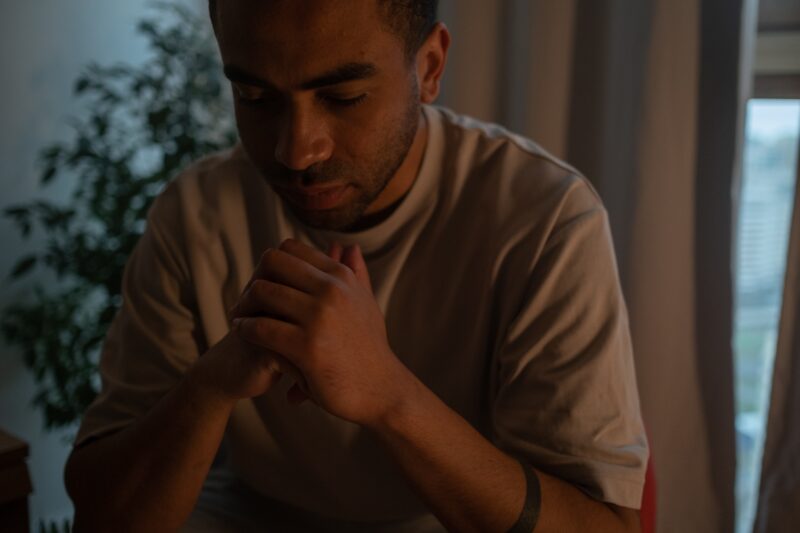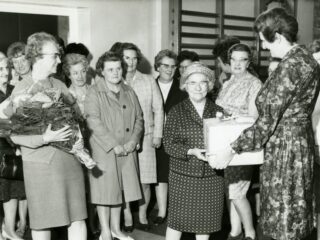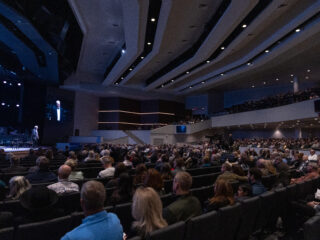During his inauguration speech on January 20, 1961, John F. Kennedy confronted his fellow citizens with one of the greatest challenges ever spoken by a president. “And so,” he said, “my fellow Americans: ask not what your country can do for you. Ask what you can do for your country.”
When giving speeches on the state of our nation, politicians and pundits will comment on how far we still have to go to fulfill the promise of the Declaration of Independence, referencing the fact that “all men are created equal.” These speeches are good and helpful for the most part. We need to remember America is a grand experiment and for all of our accomplishments as a nation, we still have a long way to go.
I find it interesting, however, that I never hear anyone challenge Americans the way John F. Kennedy did in 1961.
I hear a lot of speeches about what we should be given as citizens, but no speeches on what we should give.
I hear a lot about rights, but nothing about responsibilities.
Add that to all of the doomsday preaching about how the culture has turned on the church, leaving the church in America with only two options: retreat into the wilderness or prepare for the coming cultural war. Neither option seems particularly appealing to me. It sends me on a search for another alternative.
Given our situation, given this moment, what does my country need from me as a follower of Christ?
Let me be clear. I’m not talking about mixed allegiances. I, like every believer, have dual citizenship. I am a citizen of the United States and a citizen of the Kingdom of God. There’s no conflict. My allegiance is to Christ. I will obey the laws of the land as long as they don’t conflict with the laws of the kingdom. When they do, I will follow Christ and be willing to pay the price for my obedience to Him.
With that settled, let’s remember that we aren’t the first people of faith to be in our situation. The people of God have been here before. The stories of Joseph, Daniel, and Esther come to mind when we think about how we are to live God-ward lives in countries where the teachings of God are openly opposed and ignored. Many of the New Testament letters, such as 1 Peter, give instructions to the early church about living in a pagan culture. The most specific response to this challenge is Jeremiah’s letter to the exiles. We aren’t the first people to be here.
So, what are we supposed to do? The first answer is to pray. Now, I know you’re shocked to hear a Baptist preacher talk about praying, but we need to hear again what Paul told the Ephesians: “we do not fight flesh and blood.” The battle is spiritual and can only be fought with spiritual weapons. One of those weapons is prayer. Prayer is the moment where the eternal connects to the temporal, where the power of God is brought to bear on the demonic symptoms of our fallen world. The brokenness of our world won’t be cured by passing more legislation. Only God can fix what is messed up in our world. The last promise in Malachi is God will turn the hearts of the fathers toward the children and the children’s hearts toward their fathers. What law will do that? If things are going to change in our nation, that change will begin in the crowded pews of praying churches that know there’s no hope for our nation but Christ.
When we finish praying, we need to get up and go do good. In my tradition, we’ve emphasized faith over works to the point most evangelicals don’t think they have to do anything at all. Yes, we are saved from our sins, but we are saved for the work. We are created to become partners with God in the fulfillment of creation. Not only are we called to restore creation to its original purposes, but we are also invited to join God in His holy work of completing creation to His original design.
Salt is a catalyst. It makes things happen, but nothing happens until the salt is spread over the dish. Now I know, the common wisdom says that the powers that exist in our culture won’t let the church do anything. That’s not true. Go where nobody wants to go and do what nobody wants to do. I call it the Mother Teresa rule. She went to India to work with lepers. No one wanted to work with the lepers and no one opposed Mother Teresa until God gave her a worldwide platform. Look around. It shouldn’t take you long to find something that needs to be fixed. Feed the hungry. Tutor in a local school. Build affordable housing. Do some good.
And while you’re there, don’t be afraid of telling those around you about Jesus. The gospel is still the best news the world has ever heard. Of course, there will be those who tell us evangelism is out of place or worse, counter to the good we’re trying to do in the world. Again, this isn’t true. People are still very interested, even respectful of Jesus. They are interested in his teachings and his insights on how to live a meaningful life. What they won’t tolerate is being lectured about how to live by hypocritical, hateful, self-righteous, pretenders. If you’re the real deal, people will listen. Authentic people with an authentic message are a rare find these days.
When a light bulb blows out, no one says, “the dark killed another one.” No, the light bulb went out. If our country is dark, it’s not because the darkness won. It’s because the light failed. We don’t need any more experts telling us what is wrong with our nation. We need the church praying. We need the church doing some good. We need the church telling the story of Jesus. We need the church lighting a few candles.
It doesn’t take a lot of candles to light a dark room. It only takes one.
But it does take one.
What does my nation need from me? To be that one candle.









